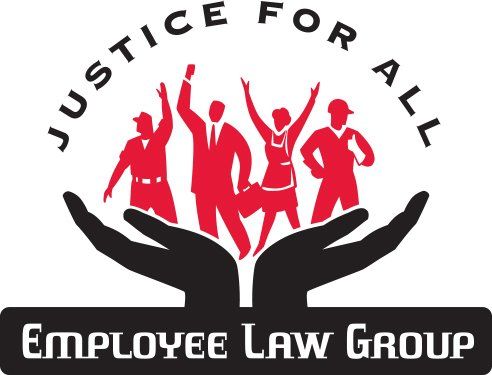- WHO WE HELP
- ABOUT
- GET STARTED
-
CASES WE TAKE
- UNPAID WAGES
- CLASS ACTION SUITS
- FAMILY & MEDICAL LEAVE
- PREGNANCY DISABILITY LEAVE
- HARASSMENT
- NEGOTIATION OF SEVERANCE
- EMPLOYMENT CONTRACT NEGOTIATION
- WORKPLACE CLOSURES
- DEFAMATION OF CHARACTER
- BAD REFERENCES
- EXPENSE REIMBURSEMENT
- ILLEGAL DEDUCTIONS FROM WAGES
- MINIMUM WAGE VIOLATIONS
- UNPAID OVERTIME
- UNPAID COMMISSIONS
- WRONGFUL TERMINATION
- SEXUAL HARASSMENT
- LOS ANGELES EMPLOYMENT LAWYER
- LOS ANGELES DISCRIMINATION LAWYER
- WHISTLEBLOWER RETALIATION
- FAQs
- BLOG
- CONTACT
Unpaid Overtime
Unpaid Overtime
Do you believe you have been cheated out of overtime pay by your employer? Unfortunately, this is a common problem across the USA, including in California. Read on to learn more about California laws for unpaid overtime. This can be a complex issue, so working with an employment attorney can help you get the money you are owed.
What California Law Says About Overtime
Basics of the overtime pay law
The state of California has strict laws pertaining to overtime pay for nonexempt workers. The essential part of the law states that you must be paid one and one-half times your hourly rate of pay if you work more than eight hours in a workday or more than 40 hours per week. That overtime rate increases to double your normal rate of pay if you work more than 12 hours on any given day or more than eight days in a row.
Additionally, your rate of pay may be no less than the state’s minimum wage, which is between $14 and $15 per hour, based on the size of the company you work for.
It doesn’t matter what state you were born in or your immigration status in the United States. As long as you are not required to be in school, which means people over the age of 16–18 years, your employer must pay you appropriately for overtime.
Even if you are a salaried employee, your employer may, in many circumstances, be required to pay you overtime. Your hourly rate is calculated using this method:
- Multiply your monthly pay by 12 months to get your annual salary.
- Divide your annual salary by 52 to figure your weekly salary.
- Divide your weekly salary by 40 (maximum hours per week) to get your hourly rate.
Exemptions to the law
There are some exemptions to the overtime pay law in California. Employers are not required to pay overtime for some workers, including:
- Executive, administrative, and professional employees
- Some employees in the computer software field
- People employed by the state, city, county, or special district
- Outside salespersons
- Immediate relatives of the employer
- Participants in national programs like AmeriCorps
- Drivers whose hours are regulated by other laws
- Employees covered by certain collective bargaining agreements
- Some workers earning commission
- Student nurses
- Airline employees under certain circumstances
- Traveling carnival ride operators
- Commercial fishing boat crew members
- Professional actors
- Some employees working in news media
- Some people in intellectual or creative pursuits
- Personal attendants not covered under the Domestic Worker Bill of Rights
- Babysitters under the age of 18
Ways Employers Try to Cheat Workers Out of Overtime Pay
Even if you are entitled to overtime pay, some unscrupulous and greedy employers will try to cheat you out of this extra remuneration. Some of the methods employers use to cheat workers include:
- Telling you that you are exempt from overtime pay when you are not
- Miscalculating your regular rate of pay to lower the overtime rate
- Paying you late for overtime you have worked
- Making you show up early for work without clocking in so your extra time isn’t calculated
- Falsifying time cards, including making you clock out for lunch but not actually giving you time off
- Firing you to avoid paying accrued overtime
- Paying cash under the table so there is no record of hours worked or compensation
- Threatening you with termination or other penalties if you try to demand overtime pay or expose workplace violations (whistleblowing)
- Misclassifying you as a contractor when you are, in fact, an employee
Some of these ways employers attempt to cheat workers out of overtime pay are additional illegal acts in their own right, such as misclassification of workers, wrongful termination, and falsification of work records.
How an Employment Attorney Can Help You Get Unpaid Overtime
If your employer owes you unpaid overtime, whether you still work for them or not, you can file a wage and hour lawsuit against them. You may think it’s not worth it for a relatively small bit of overtime compensation. However, you might be surprised at the damages you could be awarded in court by fighting back:
- Back overtime pay
- Unpaid regular pay
- Waiting time penalties of up to 30 days’ pay
- Penalties for other violations, like wage statement violations or missed meal and break penalties
- Liquidated damages for additional losses difficult to quantify
- You could wind up collecting thousands of dollars when all your employer had to do was pay you a few hundred in overtime pay to begin with.
- As you may have realized from the list of overtime exemptions listed above, determining whether or not you’re entitled to overtime pay and proving your employer violated overtime pay laws can be complicated. That’s why many people who have had overtime pay unfairly withheld choose to work with an employment attorney like Employee Law Group.
An employment lawyer can help you navigate the complexities of overtime pay violations, file any necessary legal paperwork, and represent you in court. They can also help you determine if other employment laws have been broken so you get any damages to which you’re entitled to those infractions as well.
If you have been wrongfully terminated, such as by an employer who fired you for requesting your rightfully earned overtime pay, an employment attorney may be able to help you get your job reinstated, if that’s something you want. Or an attorney can ensure that you don’t get bad references, which could keep you from securing another position.
At Employee Law Group, we have years of experience, knowledge of the law, and team resources to help you make a good case and get the unpaid overtime you are due. You can work and go on with your life, knowing you’re in good hands and will be informed every step of the way.
How do you get the process started? Employee Law Group offers a free initial consultation to hear about your unique situation and determine if we think you have a case for unpaid overtime. Then if you decide to move forward, we’ll formulate a plan together to help you get what you deserve.
To set up an appointment to discuss your case, call Employee Law Group at 310-407-7358 or reach out online and let us know how we can help.









EMPLOYEE LAW GROUP | JUSTICE FOR ALL
21250 Hawthorne Blvd. Suite 500, Torrance CA, 90503
500 Capitol Mall, Suite 2350, Sacramento, CA, 95814

